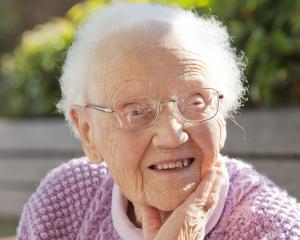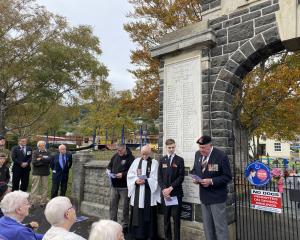It is no surprise a clear majority of New Zealanders say Anzac Day means more to them than Waitangi Day.
According to a UMR Research poll, the results of which were published this week, 60% said Anzac Day meant more to them personally. Just 8% rated Waitangi Day as more important. Twenty-nine percent thought the days were equally meaningful. Some would argue that for nearly 30 years we have been told by officialdom the Treaty is this country's ''founding document''.
They say school pupils and civil servants are given ''correct'' canons in which to believe and the panel reviewing this country's constitutional arrangements begins with assumptions about the central place of the treaty. Yet, widespread resistance remains to embracing Waitangi Day as a time for national celebration. Anzac Day, marking a military failure and heavy losses, is the day when New Zealanders come together as one people, the day most look to the past and share a sense of nationhood.
Some New Zealanders believe that while much of the world endeavours to work towards national unity, a theme especially noticeable in riven South Africa, in this country emphasis is placed on difference and division. Despite two centuries of mixing between Maori and Pakeha on a scale unimaginable between black and white in southern Africa, between Bosnian and Serbs, between Catholics and Protestants in Northern Ireland, they feel in New Zealand the emphasis is on us and them, on separateness not togetherness, on points of difference rather than what is shared.
To be fair, most people acknowledge Maori culture makes New Zealand distinctive and is to be treasured, encouraged and fostered. Others fear this comes at the cost of creating two classes of citizens: those who can trace some of their ancestry to pre-European times and those who cannot.
Variations of these underlying sentiments underpin the uneasiness and negativity among many New Zealanders about Waitangi Day.
What a relief, therefore, that a time can be marked unambiguously and unashamedly, a time when we respect and are proud of generations who went before - and gave their lives - whatever their backgrounds and origins.
Of course, although the emotional attachment to Anzac Day is strong, one wonders whether this will weaken as the face of New Zealand changes. Despite the resurgence in interest over the past 20 years, will coming generations experience as strong a tie once the last of the World War 2 combatants have gone?
The great-grandparents and great-great uncles who fought will soon become ancient, distant ancestors in faded family photographs. And will new immigrants of the future be touched in the same way when the bugle sounds the Last Post?
Nonetheless, in our increasingly individualistic world, where there is much talk of rights and entitlements, where consumerism is rampant and divisions obvious, where religion has largely lost its communal connection, there abides a deep yearning to belong and be together in a meaningful way. That is a role of national days and that is what Anzac Day provides. We can embrace something larger than ourselves and turn our focus from selfish concerns.
This is neither to accept past policies and past commitments as wise, nor to glorify the horror and hell of war. The Great War, 1914-1918, was a monumental and foolish disaster. Vietnam was questionable and there are plenty of critics of New Zealand's presence in Afghanistan. It is reasonable, despite RSA objections, for a controversial documentary about New Zealand's role in Afghanistan to be aired the night before Anzac Day. It is right, too, to acknowledge the bravery of the conscientious objectors and of our one-time enemies.
But every man and woman who served or serves in the armed forces, whether professional, volunteer or conscript, whether ensign, trooper, nurse, gunner, clerk, chef, general, fighter pilot or engineer, did so representing this nation and representing us. They - and we - are the body of this nation.
Today we mark their service and we commemorate as one people. We remember them. We thank them. And we salute them.











